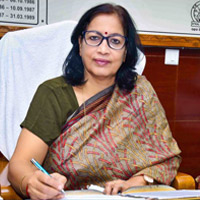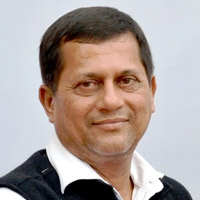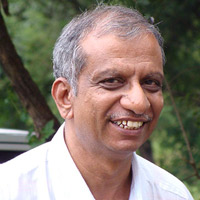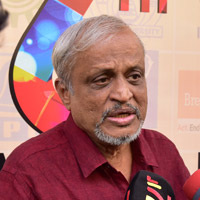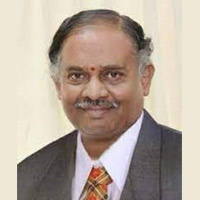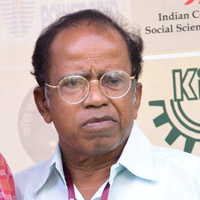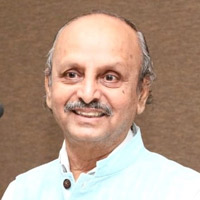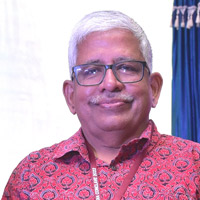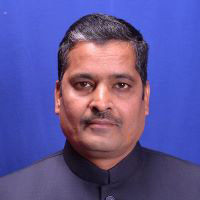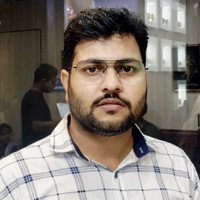About Conclave
Artificial Intelligence (AI) is bringing about a transformative shift in the global media landscape, influencing both traditional print and electronic platforms. Its versatile capabilities span various tasks, from editing and proofreading to language translation and transcription.
The journalism industry has been under immense economic pressure over the past two decades, so it makes indispensable that journalists start experimenting with generative AI to boost their productivity and relevance. AI and Generative AI are the third wave of technological change: after the Internet and social media. In reality, for the news media, it may appear like a technological tsunami. Furthermore, AI tools can generate news articles, summaries and reports.
In the domain of electronic media, AI can assist in video editing, scriptwriting, and creating compelling headlines. The emergence of AI-generated news anchors presents an innovative opportunity to reduce production expenses. The ability of AI to monitor social media platforms not only keeps journalists promptly abreast of breaking news but also provides valuable insights for strategic advertising planning for media outlets. New AI tools are on the anvil to combat misinformation and fake news.
AI applications such as ChatGPT, Stable Diffusion and Genesis have the potential to be invaluable assets to journalists. However, there is growing apprehension on the content veracity, authenticity besides its potential to lead to job displacement. The creators of these tools claim that AI's role is meant to complement human expertise rather than replace it. It is important to acknowledge that AI lacks the creativity, originality, and human touch that journalists provide and it cannot engage with the public or gather information firsthand, a vital aspect of journalism. Emotional nuances that humans understand remain beyond the capabilities of Artificial Intelligence.
AI's usage also prompts intricate questions about upholding journalistic ethics. The potential of AI to create lifelike media content raises concerns about the spread of convincing deepfakes that propagate fake news and disinformation. It also needs to ensure that AI models do not inherit the biases present in the data, compromising media integrity. Beyond this, the potential of AI for malicious exploitation, available on tools like EvilGPT and WormGPT. Therefore, it is imperative to ensure that these challenges are effectively addressed and mitigated, taking necessary precautions to uphold journalistic integrity and the responsible use of AI in media.
Despite growing interest, the effects of AI on the news industry and our information ecology in the public arena remain poorly understood. Insufficient attention is paid to the implications of the news industry’s dependence on technology companies for AI. Hence, the Organising Committee of Eighth National Media Conclave-2024 envisions that the role of AI in media is bound to expand exponentially at a much faster pace in the coming years. With these views in the background, the eighth edition will hold debate and discussion on the broad theme ‘Media in AI Era’ by welcoming insights and views from across the academic as well as professional spectrum.

To sensitise about digital ecosystem and the impact of Artificial Intelligence on society
To explore the questions of how and why media rely on technology companies for AI
To understand the contexts, reasons and implications of use of AI in media
To promote a critical look into the digital environment that is disrupting and converging state and society’s behavior in all spheres of human activities.
To analyze the increasing adoption of AI in the news and how this shift stands to reshape the public domain.
I OBJECTIVES I
Resetting the media’s critical role in disseminating information and integrating deep learning AI tools to check fake news.
Redefining the use of AI in media industry to increase efficiency and automating news distribution with AI.
Reshaping the relationship between technology and media, set boundaries of the evolving forms of media and ethical use of AI.
Develop policies to engage digital technology to help public interest journalism and promote editorial independence.
Prepare models, proposals, policy suggestions to relook into existing theories based on empirical evidences
I EXPECTED OUTCOMES I
SUB -THEMES
- Emerging Technologies in Journalism
- Visual Storytelling in the Digital Age
- AI & ML in Newsrooms Management
- Use of AI in Data Journalism
- Reporting on Artificial Intelligence
- Cultural Myths and Narratives about AI
- Artificial Intelligence in Journalism and Journalistic Practice
- Policy Frameworks and Recommendations for AI
- Future of AI in Journalism
- Augmented Reality (AR) and Virtual Reality (VR) for Immersive Storytelling in Journalism
- Social Media’s Influence on News and Information
- Social Media’s Influence on News and Information
- Renaissance of Small Media and the Pandora of AI
- Media Education & AI
- Use of AI in Election Coverage
Track-I: AI and Media
- Ethical Challenges in Digital Journalism.
- Media Technology and Coverage on the Weaker Sections
- Cyber Wellness and Healthy Life.
- AI & Climate Risk
- Technology and Changing Patterns of Media Economy
- New Media and Disturbed Cognition
- Viksit Bharat @ 2047: Making AI More Impactful for Society
- Viksit Bharat @ 2047: Role of AI-driven Media
- Impact of AI on Media Literacy
- AI in Agricultural Journalism/ Communication
- AI-Driven Agribusiness and Development Communication
- Social Media and AI in Agriculture: Trends and Impacts
Track-II: AI and Society
Leadership
ORGANISING SECRETARY-CUM-CONVENOR
NATIONAL ORGANISING COMMITTEE
LOCAL ORGANISING COMMITTEE
Speakers
Call for Papers
We invite academicians, professionals, scholars to send their research abstracts & papers as per the sub-themes for presentation and debate at the conclave. An abstract must include the central thrust of the paper, methodology, findings, keywords, and should not be more than 400 words (12 Times New Roman font size with 1.5 line spacing). The size of the full paper must not exceed the word limit of 5000 including footnotes and references.
The abstract has to be submitted online only. Once an abstract is selected, the participant shall be communicated to send their full paper to e-mail: nmcbbsr@gmail.com. The full paper should fall under any of the sub-themes. In the subject of the e-mail, the sub-theme must be written. An abstract booklet will be published and released in the inaugural ceremony.
REGISTRATION FEE
A participant is required to submit the registration form after acceptance of the abstract.
| Category | Without Accommodation (INR) | With Accommodation (INR) |
|---|---|---|
| Research Scholar | 1500 | 4000 |
| Academician | 3000 | 5500 |
| Delegates from Corporate / NGOs | 4000 | 6500 |
| Spouse | 2000 | 4500 |
REGISTRATION DATES
Last Date of Receiving Abstract: September 20
Acceptance Notification: September 25
Last Date of Registration: September 30
Last Date of Receiving Full Paper: October 25
PAYMENT MODE
Registration is considered completed only after the full payment is received. All payments related to National Media Conclave shall be transacted through the online payment system/UPI. In case of any difficulty, you can write to us. There is no refund policy for cancellation. Please note that the Conclave is not responsible for any bank charges.
Account No: 80041010000773
A/C Holder Name: National Conclave
Bank Name: Canara Bank
Address: Shaheed Nagar, Bhubaneswar
IFSC Code: CNRB0002487
MICR Code: 751015004
Note: Please send transfer details by e-mail once the payment is made at nmcbbsr@gmail.com
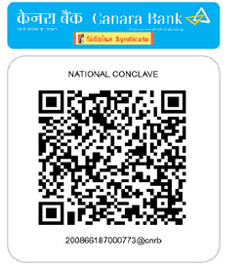
REGISTRATION ENTITLEMENTS:
- Opening Ceremony
- Plenary/Technical Sessions
- Abstract Booklet
- Subsidized Publication
- 3-day lunch and dinner
- Cultural Programme
- Closing Ceremony
- Certificate of Participation
- Conference Kit
BEST RESEARCH PAPERS
Research scholars, faculty members and practitioners are encouraged to develop theoretically grounded empirical research papers. The six best research papers shall be selected on the basis of the quality of the abstract, full paper and presentation in NMC through the peer review process.
• The first best paper will get Rs 3000
• The next two best papers will get Rs 2000 each
• The last three best papers in the series will get Rs 1000 each
POST-CONCLAVE PUBLICATION
The selected quality papers shall be considered for the Annual Issue of the Institute of Media Studies Journal of Media & Communication (ISSN: 3048-605X), a double-blind peer reviewed bilingual media quarterly journal. Other selected papers will be included in an edited volume in a book form with ISBN.
TRAVEL SUPPORT: Participants have to bear the travel expense on their own as there is no travel support from the Conclave side.
*The Conclave shall be held in an offline mode only.
NMC Awards 2024
The 8th National Media Conclave (NMC) Awards-2024 aims at recognising the institutions and organisations of national repute for their outstanding contributions and excellence in media education, public relations, corporate communications, development communications, CSR etc.
- Lifetime Achievement Award for Excellence in Media Education
- Best Journalism and Mass Communication Institute
- Best Media School for Excellent Student Media Outlet (House Journal)
- Best Media Institute for Excellence in Research & Publications
- Best Advertising and Public Relations Institute/Agency
- Best Public Sector Organisation Implementing PR
- Best Private Sector Organisation Implementing PR
- Best Communication Campaign by Public Sector Organisation
- Best Communication Campaign by Private Sector Organisation
- Best Public Sector Organisation Implementing CSR
- Best Private Sector Organisation Implementing CSR
- Best Corporate Film
I CATEGORIES: I
GUIDELINES:
Each entry should be submitted along with an entry fee of Rs.12000/- (non-refundable) which should be sent in the form of NEFT / RTGS in favor of "National Conclave" payable at Bhubaneswar. In case of multiple entries, the cumulative amount may be sent as a single NEFT/RTGS.
BANK DETAILS: Account No: 80041010000773, A/C Holder Name: National Conclave Bank Name: Canara Bank, Branch: Saheed Nagar, Bhubaneswar, IFSC Code: CNRB0002487, MICR Code: 751015004
Maximum two entries are allowed for one organization/institution.
Entries for NMC Awards-2024 should be submitted for the works completed during 2023-24. Each entry should be accompanied by a short justification on the entitlement of the entry for the award.
Each entry should be submitted to Mr. Manoranjan Panda, Organising Secretary-cum-Convenor, 8th National Media Conclave-2024, C/O-Institute of Media Studies, OCHC Complex, Janpath, Kharavel Nagar, Bhubaneswar, Odisha-751001 | E-mail: nmcbbsr@gmail.com | WhatsApp: 9861977068

Book Release
The 8th National Media Conclave-2024 will host the release of books related to media and allied disciplines. The authors and/or publishers can submit their request for release of their books. Each book release shall be given 10 minutes time and chaired by an eminent academician or practitioner (to be decided by a committee in consultation with the author/ publisher).
The release of books shall be a sponsored event. The Organising Committee shall encourage the provision of special price of such books for the conclave delegates. Send your expression of interest mail to nmcbbsr@gmail.com for further discussion and finalisation of book release schedule.
Contact us
NMC Secretariat, Institute of Media Studies, OCHC Complex, Kharvel Nagar, Janpath, Unit-3, Bhubaneswar-751001, Odisha
E-mail: nmconclave@gmail.com / nmcbbsr@gmail.com
Call/WhatsApp: +91-9040085633 / 9861977068

